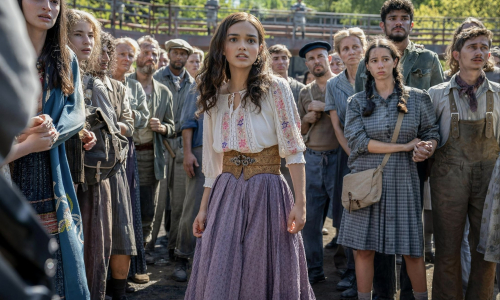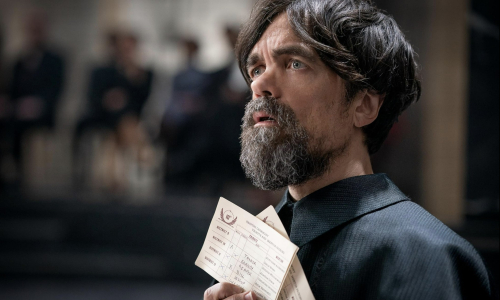- Best Movies
- The Hunger Games: The Ballad of Songbirds and Snakes

-
Director:
Francis Lawrence
-
Release date:
November 17, 2023
-
Distributed by:
Lionsgate
Features Review
With the haunting whistle of the Mockingjay echoing in the memories of its fervent fan base, the Hunger Games franchise returns with a thought-provoking prequel, "The Hunger Games: The Ballad of Songbirds and Snakes." Directed by Francis Lawrence, who helmed the final three films of the original series, this prequel invites audiences to journey back in time to the tenth annual Hunger Games. Here, we are introduced to a young Coriolanus Snow long before he becomes the dictatorial President Snow of the original trilogy. The film's storyline traces the insidious path that charts the rise of a tyrant through the eyes of the protagonist, a character not yet scarred by, but interestingly already simmering with, the ambitions that later define him.
Tom Blyth takes on the challenging role of a teenage Snow, grappling with the legacy of his family name and the burden of reclaiming its lost honor. Rachel Ziegler portrays Lucy Gray Baird, the tribute from District 12, whose encounter with Snow steers both their fates. The ensemble also features Peter Dinklage, Jason Schwartzman, Hunter Schafer, Josh Andrés Rivera, and Viola Davis, each bringing depth to their representation of Panem's complicated inhabitants.
The Symphony and Discord of the Prequel
"The Ballad of Songbirds and Snakes" aims to balance a familiar dystopian brutality with the fresh perspective of Snow's early life, contributing layers to his eventual despotism. It's essentially a character study set against the backdrop of a society recovering from conflict and pressing forward with the Hunger Games as a tool for maintaining a precarious order. The narrative draws a complex portrait of Snow, illuminating his motivations and maneuvers, which are intertwined with the fate of his tribute, transforming the Games—and indeed, Snow himself—in the process.
However, some fans may find that this origin story fumbles in its delivery, especially when evaluated against the emotional punch and swift narrative pace of the Katniss Everdeen saga. Despite the mesmerizing performances, particularly from Blyth and Zegler, and the impressive set pieces that vividly recreate the world of Panem, there is a certain lack of character development outside of Snow's orbit. Other characters, while pivotal to the plot, sometimes feel underexplored, leaving the audience yearning for a more nuanced dive into their stories and motivations.
A significant weak point comes from adapting a novel where much of the tension occurs internally within the protagonist; cinematically, such tension can be challenging to convey. Furthermore, the film's duration and some sluggish pacing may test the patience of viewers accustomed to the previous films' tight editing and relentless momentum. Despite these criticisms, it does not discount the prequel's exploration of themes like power structures, propaganda, and the essence of survival, aligning with the franchise's overarching narrative.
Conclusion: The Beat Goes On Amidst Mixed Reactions
Viewer impressions of "The Hunger Games: The Ballad of Songbirds and Snakes" span the spectrum from avid praise to tempered disappointment. At the heart of this divergence is the film's ability—or inability—to resonate as deeply as its predecessors. For the loyal fans of the series, this prequel offers a thought-provoking glimpse into the foundations of the future Panem they know so well, endowing President Snow's character with a richness that intensifies the drama of the original stories. For others, the film steps into an overextended arena, fighting to justify its place among the Hunger Games legacy.
Box office tallies and social media threads showcase a mixed bag of sentiment, with some lauding the film for its detailed world-building and compelling performance, particularly applauding Zegler's charismatic portrayal of Lucy Gray. Conversely, there's a noticeable commentary on the film's perceived dragging narrative and a desire for the same brisk storytelling that had audiences on the edge of their seats in earlier installments. Ultimately, the consensus indicates that while "The Ballad of Songbirds and Snakes" succeeds in expanding the universe and setting the stage for tyranny's roots, it struggles to fully captivate a new generation or satisfy the hunger of the existing fans for revolutionary fire.
































